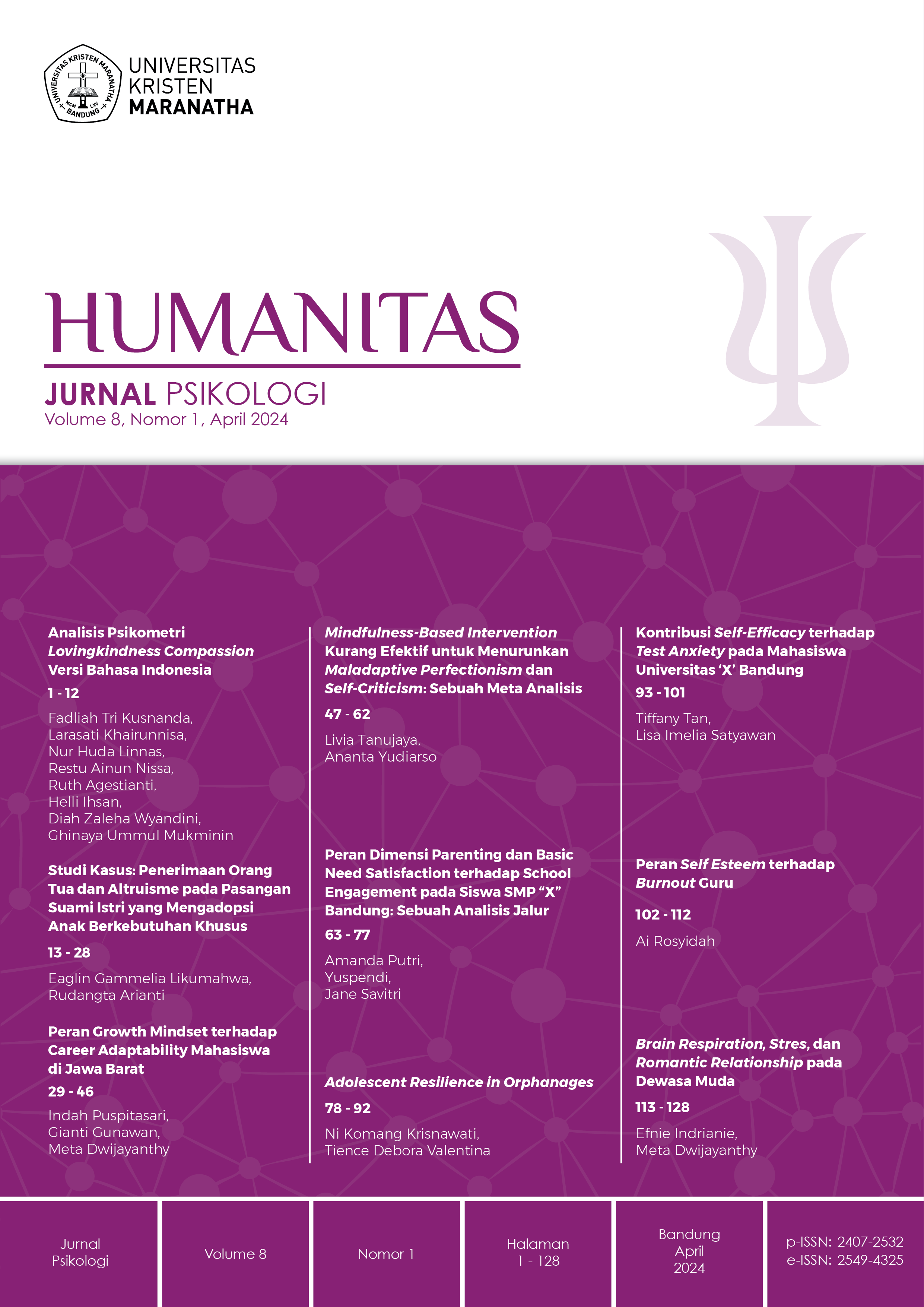The Role of Self Esteem on Teacher Burnout
Main Article Content
Abstract
Downloads
Article Details

This work is licensed under a Creative Commons Attribution-NonCommercial 4.0 International License.
References
Andi, Y., Sunaryo, H., & Anwarudin, M. . (2020). Pengaruh Dukungan Sosial, Self-Esteem dan Selfefficacy terhadap Burnout Mahasiswa (Studi Kasus Pada Mahasiswa Jurusan Manajemen Fakultas Ekonomi dan Bisnis Universitas Islam Malang). Jurnal Riset Manajemen PRODI MANAJEMEN MANAJEMEN, 17–31.
Arismunandar. (1998). Hubungan Karakteristik Individu dan Karakteristik Lingkungan dengan Stres Kerja pada Guru di Sulawesi Selatan. Jurnal Ilmu Pendidikan, 5(1).
Awe, E., Dantes, N., & Lasmawan, W. (2014). Hubungan Antara Kualifikasi Akademik, Kompetensi, Motivasi Kerja Dengan Kinerja Guru Sekolah Dasar (SD) Di Kecamatan Bajawa, Kabupaten Ngada. Jurnal Program Pascasarjana Universitas Pendidikan Ganesha, 4(1), 1–13.
Cooper C, N., Schabarcq M, J., & Winnubst J, A, M. (1996). Handbok of work and heath psychology (J. Wiley & S. Ltd (eds.)). United Statess.
Freudenberger, H. (1974). Staff Burn-Out. Journal Of Social Issues, 30(1), 159–165. https://doi.org/https://doi.org/10.1111/j.1540-4560.1974.tb00706.x
Gold, Y., & Roth, R. A. (1993). Teachers Managing Stress & Preventing Burnout (1st Editio). https://doi.org/https://doi.org/10.4324/9780203209899
Jame, C., & Acocella, J. R. (1995). Psikologi tentang Penyesuaiam dan Hubungan Kemanusiaan. IKIP Semarang Press.
Maslach, C. (1982). Understanding Burnout: Definitional Issues in Analyzing a Complex Phenomenon (W. S. Paine (ed.)). Beverly Hills: Sage Publications.
Power, J, D., Perruccio, A. V, Desmeules, M., Lagace, C., & Badley, E. M. (2006). Ambulatory Physician Care for Musculoskeletal Disorders in Canada. The Journal of Rheumatology, 33(1), 133–139.
Sulastri, T., Sumardi, & Istiadi, Y. (2020). Pengaruh self-esteem dan komunikasi interpersonal terhadap efektivitas kerja guru. Jurnal Manajemen Pendidikan, 08(1), 38–40. https://doi.org/10.33751/jmp.v8i1.1962.
Suryandari, S. (2016). Pengaruh Burnout, Self Esteem Terhadap Kinerja Guru. Jurnal Ilmiah Inovasi, XVIII(0854-4328), 12–20.
Yusuf, S., & Nurihsan, A, J. (2006). Landasan Bimbingan & Konseling (Cet.2). Remaja Rosdakarya.

